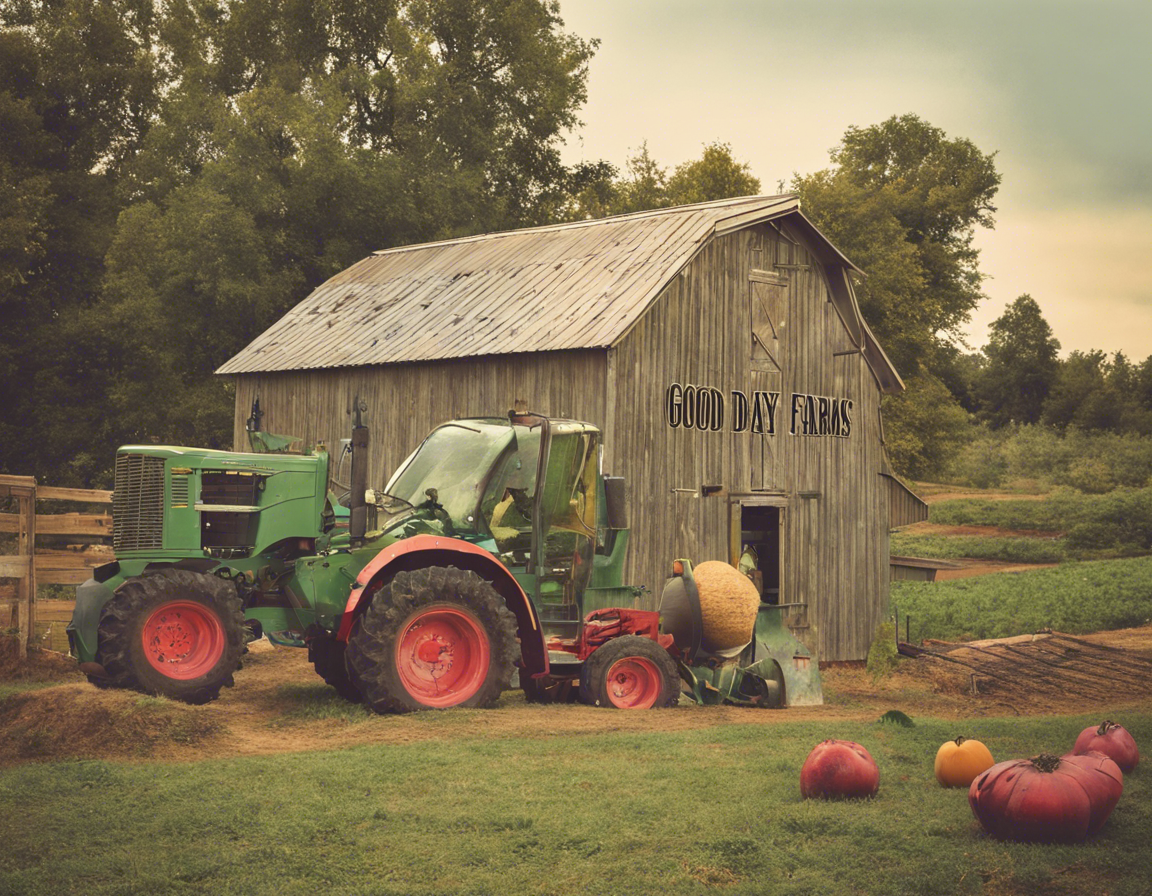Introduction
Good Day Farms is a shining example of sustainable and ethical agriculture in today’s world. They have set a high standard for modern farming practices that prioritize the well-being of the land, animals, and people involved. In this article, we will delve into the various aspects of Good Day Farms, including their sustainable farming methods, ethical treatment of animals, community involvement, and products offered.
Sustainable Farming Methods
Good Day Farms is dedicated to implementing sustainable farming methods that minimize the environmental impact of agricultural activities. They focus on practices such as crop rotation, cover cropping, and natural pest control to maintain soil health and biodiversity. These methods not only ensure the long-term productivity of the land but also help to reduce the need for synthetic fertilizers and pesticides.
The farm also emphasizes water conservation through efficient irrigation systems and rainwater harvesting. By using water wisely, Good Day Farms not only preserves this precious resource but also reduces the risk of water pollution from agricultural runoff.
Ethical Treatment of Animals
At Good Day Farms, animal welfare is a top priority. The farm’s livestock are raised in humane conditions with access to ample space, fresh air, and natural light. The animals are fed a diet free of antibiotics and hormones, allowing them to grow in a healthy and natural way.
The farm’s commitment to ethical treatment extends to its practices of pasture-raising and rotation grazing. These methods not only ensure the well-being of the animals but also contribute to sustainable land management by preventing overgrazing and soil erosion.
Community Involvement
Good Day Farms actively engages with the local community through educational programs, farm tours, and collaborations with schools and organizations. By sharing their knowledge and practices with others, the farm aims to raise awareness about sustainable agriculture and inspire more people to support local, ethical food production.
The farm also participates in farmers’ markets and community-supported agriculture (CSA) programs, where members of the community can purchase fresh, healthy produce directly from the farm. This direct connection between farmers and consumers not only benefits both parties economically but also fosters a sense of community resilience and food security.
Products Offered
Good Day Farms offers a wide range of products, including organic fruits and vegetables, pasture-raised meats, free-range eggs, and artisanal cheeses. These products are not only nutritious and delicious but also environmentally friendly and ethically produced.
By supporting Good Day Farms, consumers can be confident that they are purchasing high-quality, sustainably sourced products that support the health of both people and the planet. In a market where industrial farming practices often prioritize profit over ethics and sustainability, Good Day Farms stands out as a beacon of responsible agriculture.
Frequently Asked Questions (FAQs)
-
Q: How does Good Day Farms ensure the quality of its products?
A: Good Day Farms follows rigorous quality control measures at every stage of production, from planting to harvesting to packaging, to ensure that only the best products reach consumers. -
Q: Are Good Day Farms’ products certified organic?
A: Yes, Good Day Farms is certified organic by a reputable certification body, ensuring that their products meet the highest standards of organic farming. -
Q: Does Good Day Farms use any synthetic chemicals on its crops?
A: No, Good Day Farms is committed to sustainable farming practices and does not use synthetic fertilizers, pesticides, or herbicides on its crops. -
Q: How does Good Day Farms contribute to environmental conservation?
A: Good Day Farms adopts various eco-friendly practices, such as crop rotation, cover cropping, and water conservation, to minimize its environmental impact and promote biodiversity. -
Q: Can I visit Good Day Farms for a tour?
A: Yes, Good Day Farms offers farm tours to the public, where visitors can learn about their sustainable farming methods and interact with the animals on the farm.
Conclusion
In conclusion, Good Day Farms is a shining example of how modern agriculture can be both sustainable and ethical. By prioritizing the health of the land, animals, and community, Good Day Farms sets a high standard for responsible farming practices that benefit not only the present but also future generations. Consumers who choose to support Good Day Farms are not just purchasing high-quality products but also investing in a healthier, happier, and more sustainable future.



